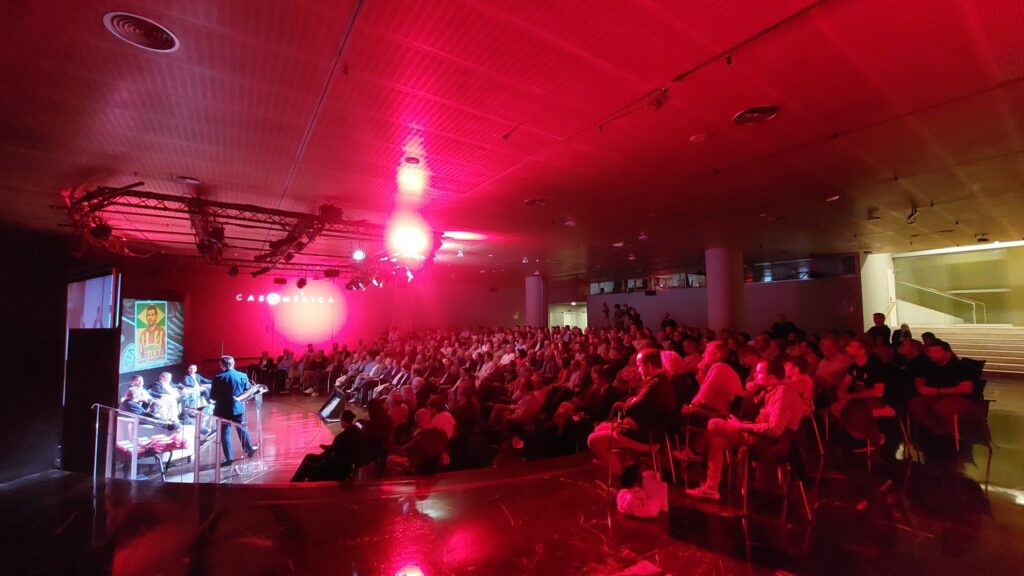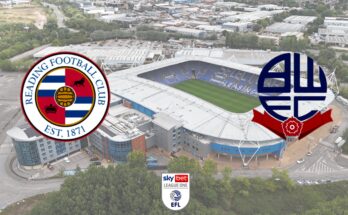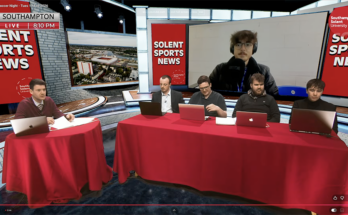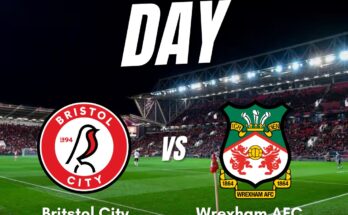
On the eve of Hispanic Heritage Day, in a Madrid that senses autumn and already smells of flags, Casa de América was the scene of one of those celebrations that can only happen in a city of incessant memory and shared passion. Organised by the association Los 50 under the evocative title of ‘Ibero-America and Atleti’, it brought together legends from across the pond, while in the background, Atlético played a distant friendly match against Inter, as if looking to the past and the future on the same afternoon.
The Gabriela Mistral amphitheatre was filled to capacity at 7:03 p.m., amid greetings, applause, and chants, because Madrid knows how to play host when Atleti is the guest of honour. Three former South American players, who wrote their names in the club’s history, answered the call: Diego Godín, Rubén Cano, and Donato. Óscar Mayo, representing the club, and Mayor Almeida, who never misses an opportunity to confirm that politics and football are sister provinces in the capital, joined the festival of accents.
The ceremony, of course, went far beyond memorabilia and nostalgia. Juan Pedro Valentín opened the proceedings and immediately, as if they were Indians on the prairie, Petón and Jorge Lera brought up the nickname that served as a spur in the 1970s and ended up as a badge of pride. Because Atleti, said Lera, began to be called ‘Indians’ due to the flood of South Americans who arrived in waves, and because contempt is only effective if the recipient believes it. When Cano lamented that this nickname followed him to the national team, the echo was inevitable: history sometimes repeats itself, but they turned it into a medal.
Donato recalled the warm welcome he received in the dressing room after landing from Brazil, like someone finding shelter in the middle of a storm.
As a good defensive leader, Godín insisted: Atleti is not just history, it is the present and the future. That the important thing was never to lose the essence, that humility, that sense of belonging in an era when clubs seem more like multinationals than teams. ‘After all the growth the club has experienced, we must take care of our roots,’ he said.
The argument, repeated like a litany in the conversations at the event, was clear: Atleti is Latin America because its colours have been defended by more than 120 players from there, from the first pioneer, José Alberto Valdivieso in 1947, to the latest signing, Nico González. No other Spanish club has such a connection, and the fact, more than statistical, is emotional. Because this club became great on the basis of different legs, hearts, and accents, but a single shirt.
Rubén Cano, a man of lucid words and memory of the stands, dropped a phrase with the aroma of confession and gunpowder: ‘They (Real Madrid) always had help.’ A statement that, in Cano’s mouth, sounds like the truth of old times and journalistic mischief: Atleti has had to fight tooth and nail for every bit of glory, while others, he says, found clearer paths. This is also reflected in that rescued interview, where his time as a player and sporting director is recounted with pride, but also institutional frustration at signings that slip away due to mysterious manoeuvres by third parties. Cano, like the Atleti Indians, learned to turn every stone into pride.
Diego Godín, for his part, showed himself to be a natural ambassador for the club, reminding us that he is still a living part of the institution and an example for young people who dream of wearing the red and white. He defended the club’s values, those that are not listed on the stock exchange, with tooth and nail: humility, hard work, and belonging. And he issued a warning for the future: ‘We cannot lose the roots that made us great.’
The night ended with crowds singing his praises, as befits any red-and-white rally. What was celebrated was not only the indestructible bond between Atleti and South America, but also the certainty that, in an era of marketing and globalisation, there are still clubs that understand history as skin and the shirt as a flag. Because Atleti is not just a club or just a fan base: it is a family made up of names, accents, and legends. And no matter how much some have been helped, others will continue to make history because they have never forgotten who they are.


